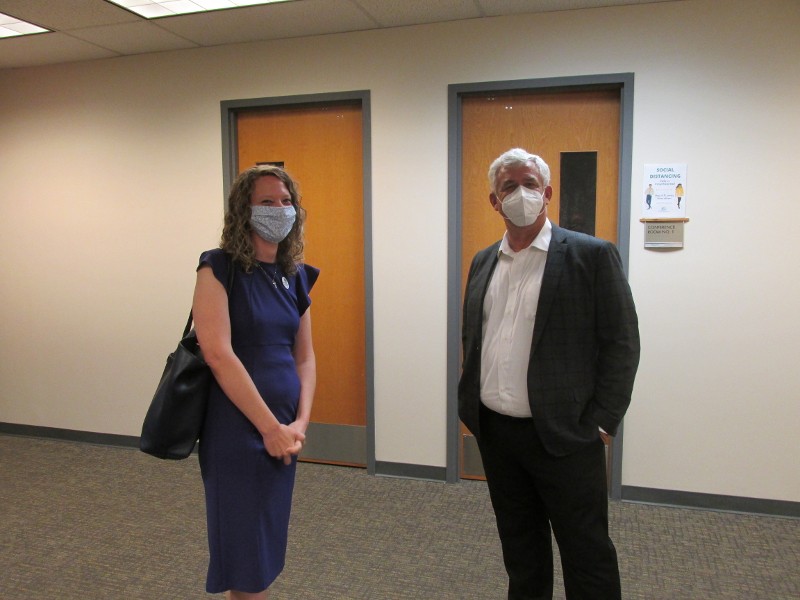GAINESVILLE – A handful of years before the Georgia Environmental Protection Division set 50-acres as the standard for how much land could be cleared and exposed to the elements by developers during construction of large projects, Hall County decided 20-acres would be its limit.
Since 2003 Hall County has been unique, much more stringent, when compared to the other counties in the upper Chattahoochee River drainage basin, all of whom adopted the EPD 50-acre standard in 2008.
So recently, according to Hall County’s Director of Public Works and Utilities, Srikanth Yamala, county officials decided to “house-keep and clean up the code and make it more relevant to 2020.”
Yamala made his comment at Monday’s Hall County Commission work session. He explained, “We looked at eight surrounding jurisdictions and none of them had this particular (20-acre limit) requirement,” Yamala said. “As with anything Hall County does, we’re always trying to look at certain things to see if they are working well, or if they are causing some unintended hardships on the development community.”
At Thursday evening’s county commission voting session, and the first public hearing on the resolution to align with the EPD’s 50-acre standard, Brian Rochester of Gainesville spoke in favor of the move.
Rochester is a land development consultant with Rochester and Associates of Gainesville. He told commissioners keeping the reduced limit of 20-acres inhibits certain larger developments. “Some footprints require extensive movement of earthwork in order to balance the dirt on site.” Rochester said.
(Note: 20-acres are roughly the size of just over 15 high school football fields or a square 933-feet by 933-feet.)
Rochester said adopting the more-generous EPD standards like the surrounding counties have in place would not be a step towards environmental irresponsibility. ”EPD does have very good guidelines in place about what can be done and how we go about doing this. There are some good controls in place,” Rochester argued.
“I think we need to always make sure there is a balance between development and environmental concerns, and this isn’t throwing things out the window,” Rochester added.
Speaking in opposition to the change to a 50-acre limit was Jennifer Flowers, Executive Director of The Lake Lanier Association. Flowers told commissioners that she is also a soil and erosion inspector certified by the state and is very familiar with the challenges related to erosion control and siltation during large scale commercial and residential development.
“EPD sets their standards for what is best for the state as a whole,” Flowers said, “however, many places in the state don’t have the resource we have here – Lake Lanier. In fact, Lanier was designated by EPD as ‘an impaired waterway’ this year.”
“There simply is no justifiable reason for reducing the protection of the lake that is afforded by the twenty-acre limitation,” Flowers argued.
“Protection of Lake Lanier should be job one for every official in Hall County and should be a fundamental precept of every developer who seeks to benefit from the presence of Lake Lanier,” Flowers added.
“The action you take should be a beacon for other local issuing authorities in the Lake Lanier watershed to raise their standards to the bar that Hall County has set, rather than Hall County lowering itself to the lower standards of protection of everyone else.”
A second public hearing on amending the current code, and a probable final vote by the county commission, is scheduled for Thursday, August 13th, at 6 p.m. in the Hall County Government Center.

http://accesswdun.com/article/2020/7/922852/hall-countys-move-to-relax-erosion-control-measures-draws-comments-pro-and-con
